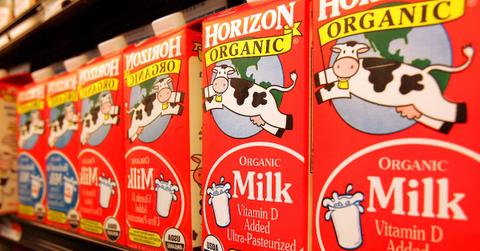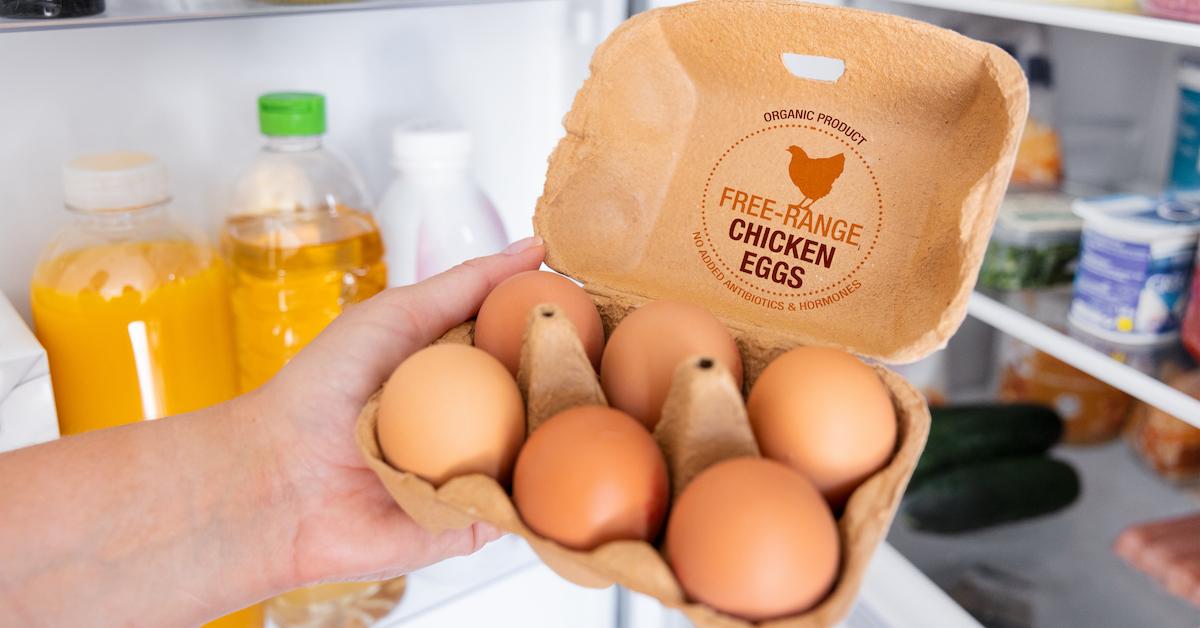You've Likely Fallen Victim to "Humane Washing" From This Powerful Industry
Published Jan. 20 2023, 2:49 p.m. ET

In the age of eco-conscious and compassionate living, terms like greenwashing and cleanwashing have emerged, highlighting the misconceptions that brands use to market their products to consumers. There’s also the term humane washing, which has to do with animal agriculture companies making their products seem more humane than they really are.
This practice has become commonplace in the animal agriculture industry — after all, it’s near impossible to produce meat, fish, eggs, and dairy products without treating an animal inhumanely. So, keep reading to learn more about exactly what humane washing is, and how to spot it.
What is humane washing?
Humane washing (rhymes with brainwashing) is when industries producing animal products try to convince consumers that their goods are produced humanely. Essentially, marketers wash over the reality of the cruel and abusive ways animals are treated, cleansing the truth with claims of humane treatment.
This mainly applies to the animal agriculture industry (meat, fish, dairy, and eggs), but it can also be used for other industries that exploit animals, such as when animals are used for fashion (such as fur, leather, and wool) or for entertainment (like bull riding, horse racing, and zoos or aquariums).

What are some examples of humane washing?
If you’ve ever seen marketing for animal-based food products that suggested that the products came from happy animals who were treated well, that was likely humane washing — since, after all, the phrase “humane slaughter” is a bit of an oxymoron, isn’t it?
As noted by Surge Activism, common examples of humane washing are the many phrases often tacked onto meat, fish dairy products, and eggs, such as: organic, free range, cage-free, ethically sourced, grass-fed, family farmed, pasture-raised, humanely raised, local, line-caught, dolphin-safe, etc. There are even some certifying organizations that issue special labels bearing phrases of the like, which companies can pay to have printed on their packaging.
All of these phrases evoke visions such as cows calmly chomping on grass beside a quaint red barn, family farmers picking up eggs laid by happy hens, and tuna fish contentedly being reeled in on a fishing line surrounded by jolly dolphins.
Not to mention, images like these are often used on food packaging and in advertisements. (Haven’t you ever seen a carton of milk with a photo or cartoon of a grinning cow on a grassy farm?) And there are even brand names that aim to elicit images of happy animals, like The Laughing Cow and Alexandre Family Farm.
However, the products do not actually come from places that look like what’s depicted on the cartons, making these images and phrases straight-up lies. Undercover videos of the factory farming industry, easily accessible on the internet, shows that these places are the last place an animal would ever want to be.
For instance, undercover footage of a farm producing milk for milk company Fairlife went viral in 2019. The videos showed farm workers brutally physically abusing cows and calves. The investigation left viewers and customers horrified to learn that the company — who had focused its marketing tactics around having high animal welfare — was humane washing.
But if consumers have never seen real photos or videos of what goes on in factory farms and slaughterhouses, they’ll have no reason not to believe the lies that the animal agriculture industry is telling them about where their food comes from.
Why do meat, dairy, and egg companies humane wash their products?
So why are these brands humane washing their products, and lying to the public about how animals are treated and killed? Well, put simply, it’s a proven marketing tactic that helps these companies make more money.
Ethics have become a growing concern for consumers, and businesses know that. So, instead of changing their business practices to actually treat animals better, they just tell the public that they are treating animals better, and continue to hide the truth.
And hiding the truth is pretty easy, especially in the U.S., where there are ag-gag laws across the country, according to the ASPCA. These laws criminalize people who seek to expose animal cruelty on farms and in slaughterhouses, by making it illegal to film, photograph, or investigate these facilities.
How to spot humane washing:
Any claim you see on a package of meat, fish, eggs, or dairy products regarding the humane treatment of the animals used for the products should be taken with a healthy dose of skepticism. Unfortunately, no matter how compassionately any of these companies claim to treat their animals, there’s nothing benevolent, ethical, or sustainable about artificially inseminating, breeding, confining, and slaughtering animals who never asked for such a life.
Fortunately, we are living in a bit of a renaissance of vegan alternatives to conventional animal products. If you have the option to purchase plant-based meats, cheeses, yogurts, eggs, fish, and ice cream instead of their animal-based counterparts, there’s no need to fall for humane washing.